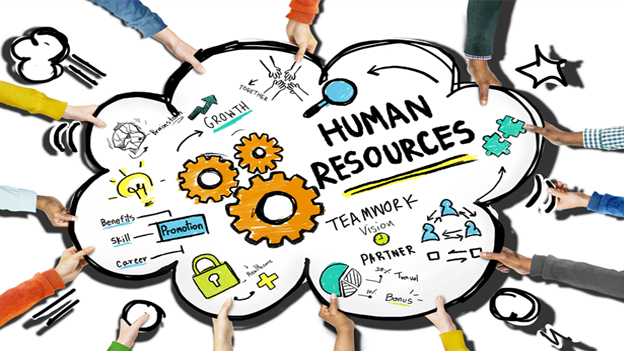How can HR benefit a company?
Human Resources (HR) plays a crucial role in benefiting a company in various ways. Here are some key ways in which HR can add value and contribute to a company’s success:
Talent Acquisition and Recruitment
HR is responsible for attracting, hiring, and onboarding the right talent for the organization. By bringing in skilled and qualified employees, HR ensures that the company has a capable workforce to drive productivity and growth.
Employee Engagement and Retention
HR focuses on creating a positive work environment and fostering employee engagement. Engaged employees are more likely to be motivated, productive, and committed to the company, leading to higher retention rates and reduced turnover costs.
Training and Development
HR oversees training and development programs to enhance employees’ skills and knowledge. Well-trained employees are more efficient, adaptable, and better equipped to handle new challenges, leading to increased productivity and improved performance.
Performance Management
HR plays a key role in setting performance expectations, conducting performance evaluations, and providing feedback to employees. Effective performance management ensures that employees understand their goals and are aligned with the company’s objectives.
Conflict Resolution and Employee Relations
HR acts as a mediator in handling conflicts and employee relations issues. By addressing concerns and promoting a positive work culture, HR helps maintain a harmonious and productive work environment.
Compliance and Legal Responsibilities
HR ensures that the company complies with labor laws, regulations, and industry standards. This helps avoid legal issues and potential liabilities that could negatively impact the company’s reputation and finances.
Workforce Planning and Succession Management
HR engages in strategic workforce planning to ensure the company has the right talent to meet future business needs. Additionally, succession planning helps identify and develop potential leaders within the organization.
Compensation and Benefits Management
HR designs and manages compensation and benefits programs to attract and retain top talent. Competitive compensation packages and attractive benefits contribute to employee satisfaction and loyalty.
Health and Well-being Initiatives
HR promotes employee health and well-being through wellness programs and initiatives. Healthy employees are likely to have better attendance, higher job satisfaction, and improved overall performance.
Promoting Diversity and Inclusion
HR plays a role in promoting diversity and inclusion within the organization. Embracing diversity fosters a diverse range of perspectives, ideas, and experiences, leading to greater innovation and creativity.
Change Management: HR helps facilitate organizational change by supporting employees through transitions and effectively communicating changes in processes or structures.
Overall, HR’s strategic management of human capital is essential for a company’s growth, productivity, and success. It ensures that the right people are in the right roles, motivated to perform at their best, and aligned with the company’s goals and values.
Best HR course in Chandigarh It is provide by Cbitss in sector-34 in Chandigarh.
What is the importance of HR in industries?
Human Resources (HR) plays a critical and multifaceted role in industries across the board. Its importance stems from the fact that HR is responsible for managing an organization’s most valuable asset – its people. Here are some key reasons why HR is essential in industries:
Talent Acquisition
HR is responsible for identifying and attracting skilled and qualified individuals to fill various roles within the organization. Effective talent acquisition ensures that the company has the right people with the necessary skills and experience to drive success.
Employee Development
HR oversees training and development programs that help employees enhance their skills and knowledge. These programs improve employee competence, performance, and job satisfaction, leading to a more capable and engaged workforce.
Performance Management
HR sets performance expectations, conducts evaluations, and provides feedback to employees. By monitoring performance, HR helps employees stay on track and aligned with the company’s objectives.
Employee Engagement and Retention
HR fosters a positive work culture and creates initiatives to engage employees. Engaged employees are more committed to their work, have higher job satisfaction, and are less likely to leave the company.
Conflict Resolution
HR acts as a mediator in resolving conflicts between employees or between employees and management. By addressing issues promptly, HR maintains a harmonious work environment and minimizes disruptions.
Compliance and Legal Responsibilities
HR ensures that the company complies with labor laws, regulations, and industry standards. This helps avoid legal risks and potential liabilities that could harm the company’s reputation and financial standing.
Organizational Development
HR plays a strategic role in organizational development by designing and implementing policies, procedures, and processes that align with the company’s goals and values.
Change Management
HR supports employees during times of organizational change, such as mergers, acquisitions, or restructuring. Properly managed change can improve employee morale and ensure a smooth transition.
Diversity and Inclusion
HR promotes diversity and inclusion within the organization, creating an inclusive work environment that embraces differences and fosters creativity and innovation.
Health and Safety
HR is involved in creating and implementing health and safety policies to ensure the well-being of employees. This leads to a healthier and more productive workforce.
Succession Planning
HR identifies and develops potential leaders within the organization through succession planning. This ensures that the company has a pipeline of capable individuals to fill key roles in the future.
Employee Benefits and Compensation
HR designs and administers compensation and benefits packages that attract and retain top talent, contributing to employee satisfaction and loyalty.
Overall, HR’s importance in industries lies in its ability to effectively manage the organization’s human capital. By attracting, developing, and retaining talented employees, HR contributes significantly to the company’s success, productivity, and competitive advantage in the market.
How Human Resource Management helps the HR professionals to do their job?
- Recruitment and Selection: HRM provides structured recruitment and selection processes, including job analysis, candidate screening, and interview guidelines. This ensures that HR professionals attract and hire the right talent for the organization.
- Training and Development: HRM offers training and development programs that enhance HR professionals’ skills and knowledge. These programs enable HR professionals to stay updated with industry trends, legal regulations, and best practices in HR.
- Performance Management: HRM establishes performance management systems that help HR professionals set clear performance expectations, conduct performance evaluations, and provide constructive feedback to employees.
- Employee Engagement: HRM develops engagement strategies and initiatives to foster a positive work culture and increase employee engagement. Engaged HR professionals are more likely to be motivated and dedicated to their roles.If you required any then visit our website:- HR course in Chandigarh
Read more article:-Blogozilla.



